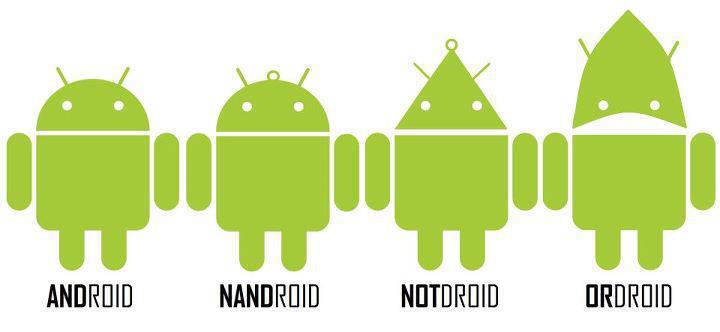Summer 2025 (S2), CC
| Lecture S10: MT: 10:00-11:55; W:10:00-10:55 | Location: S10: RM-420 |
| Office Hour Mon 12:00-13:00; Wed 17:00-18:00, RM-544 Please let me know on Teams if you are coming Other times will require appointments | Midterm Week 8, Thursday Final TBA |

This course introduces students to the basic concepts of digital logic design, and the function and use of typical digital components belonging primarily to the small and medium scale integration (SSI, MSI) families. The design principles will be used to develop an understanding of how the functional capabilities can be provided by hardware for the operation of a microprocessor. In addition, this course will introduce the student to machine language, its relationship to the design of a computer, and its symbolic representation as assembly language. The assembly language of a particular CPU will be used to illustrate machine language programming concepts. An interactive logic simulation environment for designing and testing logic circuit design will be used for the assignments.
Textbook and References
- Logic and Computer Design Fundamentals, 5th edition, M. Morris Mano, Charles R. Kime, Tom Martin, Pearson, 2016 (4th edition is also OK)
- Update: the book can be purchased from Pearson of course. The library also has copies.
- Update: one can also try to Google for the USED or PDF version of the 4th edition. Several reasonable results should pop up easily.
- Update: the book can be purchased from Pearson of course. The library also has copies.
- *LogicWorks5, Capilano Computing Systems Ltd, Addison-Wesley, Manual & software used for digital hardware simulation
Mano et al. is mandatory. We are only using the LogicWorks 5 software provided with the second book, the book itself is not mandatory.
To run LogicWorks on macOS, I recommend Whiskey (which is based on CrossOver, which is based on Wine). For Linux users, use Wine or any of its GUI wrappers.
FLEX Video lectures
Assignments and Labs
In person quizzes:
- Quiz 1: 30 Jan 2025
- Quiz 2: 13 Feb 2025
- Quiz 3: 27 Feb 2025
- Quiz 4: 27 Mar 2025
Assignments:
- Assignment 1
- Assignment 2
- Assignment 3
- Assignment 4
Equation writing: https://jetic.org/common-latex-stuff/
Labs:
- Lab 1: due 10 Feb 2025 00:00
- Lab 2: due 24 Feb 2025 00:00
- Lab 3: due 31 Mar 2025 00:00
- Lab 4: due 14 Apr 2025 00:00
Slides and Curriculum
Please note that you should NEVER use these slides as your only study material. It should be accompanied by either your notes or the actual textbook.
Handout: Binary Identities (HS401)
LaTeX Equation writing: https://jetic.org/common-latex-stuff/
| Week 1 13.01 |
Introduction (LS0); Lec 1 Digital Information Representations (LS1, LS2, LS3) |
|
| Week 2 20.01 |
Lec 2 Combinational Logic Circuits (LS4, LS5); Link to LogicWorks on Moodle |
|
| Week 3 27.01 |
Lec 2 Combinational Logic Circuits (LS6, LS7) | Quiz 1; |
| Week 4 03.02 |
Lec 2 Combinational Logic Circuits (LS8) | Lab 1 due; |
| Week 5 10.02 |
Lec 3 Combinational Logic Design (LS9, LS10) | Quiz 2; |
| Week 6 17.02 |
Lec 3 Combinational Logic Design (LS11, LS12) Family Day, no class on Monday |
Lab 2 due; |
| Week 7 24.02 |
Lec 3 Combinational Logic Design (LS13, LS14, LS15, LS16) | Quiz 3 |
| Week 8 03.03 |
Review for Midterm (LS17, LS18) | Midterm (Mock1, Mock2) |
| Week 9 10.03 |
Lec 4 Sequential Circuits (LS19, LS20) | |
| Week 10 17.03 |
Lec 4 Sequential Circuits (LS21, LS22) | |
| Week 11 24.03 |
Lec 4 Sequential Circuits (LS23, LS24) | Lab 3 due; |
| Week 12 31.03 |
Lec 5 Registers (LS26, LS27, LS28) | Quiz 4 |
| Week 13 07.04 |
Lec 5 Registers (LS29, LS30) Review (LS31) |
Lab 4 due; |
| Week 14 14.04 |
Final (Mock) |
Grading
| Assignments and Labs | 20% |
| Quiz | 10% |
| Midterm | 20% |
| Final | 40% |
In-Person Examination Policy
All exams are in-person, and handwritten ONLY. You should bring a pen/pencil and ruler for circuit drawing by hand. All circuit diagrams must be drawn using the ruler.
You can bring one A4 or US Letter sized cheat sheet, it can only be one-sided for the midterm (double for final) and completely handwritten. Prints are not allowed. You should hand in the cheat sheet with your answers.
Minimum Grades to Pass Policy
Students must achieve 50% in Labs, 50% in the Final exam, and 50% in overall grade to pass the course.
Cheating and Plagiarism Policy
I expect all students to uphold the principle of academic honesty. Cheating and plagiarism (presenting another person’s words or ideas as one’s own) are not acceptable behaviour at anywhere. Depending on the severity of the offence such acts can result in a grade of zero on the test or assignment, a failing grade (F) in the course, or expulsion. In all cases, the circumstances and the penalty are recorded in the student’s file.
Starting from 2024, all submissions will be checked against previous submissions for duplication. If caught, you will be charged.
Policy for Late/Re-submission
If you are affected by personal issues such as sickness, injuries, the passing of a relative, or other traumatising experiences, you should contact an advisor and seek professional help, and I will try to accommodate as much as possible. Otherwise, late submissions and resubmission are NOT allowed beyond the original due.
Policy for Plagiarism in Labs
Do not share your files with others. Do not let others copy or mimic your files. You may take inspiration, but any work you do must be original. Failure to comply will result in plagiarism charges.